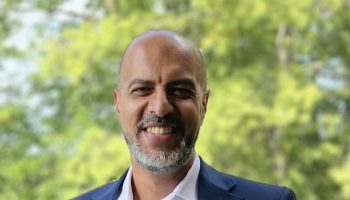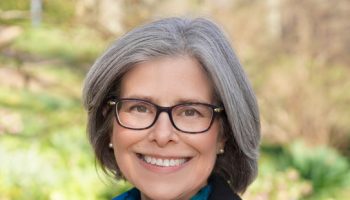
There are many ways to make meaning beyond the worlds of religion, spirituality and faith. One is to look inward, truly understanding one’s own psyche and personality — and one way of doing this is through the Enneagram of Personality model. Generally speaking, the model is a typology laying out nine different personality types and how they interact with one another.
A person’s understanding of themselves, and how they exist and relate to others of different personality types, can be a powerful thing.
Deborah Threadgill Egerton takes that understanding one step further; the psychotherapist, author and Unity and Belonging Advocate for the Healing of Humanity does groundbreaking work in using the Enneagram to bridge historical divides.
Egerton will speak at 2 p.m. today in the Hall of Philosophy for the Week Three Interfaith Lecture Series and the theme “Ethics and Meaning-Making Beyond Faith,” discussing her work dedicated to dismantling marginalization and transcending the divisive practice of othering.
For this work, she’s received the International Enneagram Association’s Certification of Distinction.
Currently, Egerton serves as the president of that organization, and she’s the author of Know Justice Know Peace: A Transformative Journey of Social Justice, Anti-Racism, and Healing through the Power of the Enneagram. The Enneagram, she wrote, presents a powerful guide for personal, individual, and collective transformation.
“If we choose to move forward, we all have some things to unlearn and we must reeducate ourselves,” Egerton wrote in Know Justice Know Peace. “Much like an infection that requires treatment before it enters the bloodstream, we will have to inspect our own internal wounds and address them if we expect to survive. Find out where the wound is located in your being and begin the healing process. … To thrive and prevail during these challenging times is to allow ourselves to learn from one another through our collective connection. In order to accomplish this, our differences must be carefully brought to the surface, acknowledged, and respected as valuable aspects of our human diversity.”




